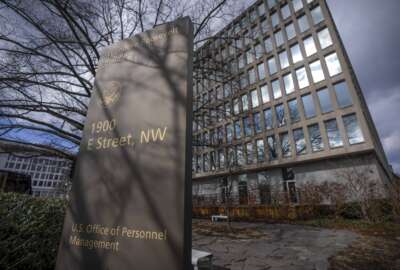MSPB eyes gaps in employee motivation
From tightened purse strings to a rapidly retiring workforce, federal agencies face a potential witches' brew when it comes to maintaining employee motivation, the...
From tightened purse strings to a rapidly retiring workforce, federal agencies face a potential witches’ brew when it comes to maintaining employee motivation, the Merit Systems Protection Board found in a new report.
In “Federal Employee Engagement: The Motivating Potential of Job Characteristics and Rewards,” the agency responsible for ensuring federal workforce policies are on the up and up, points to the importance of keeping employees engaged, especially amid the uncertainty roiling through the federal community.
“Having skilled, engaged employees is more important than ever, especially in light of austere fiscal conditions, budget constraints, impending retirements and public debate over the value of federal employees and their work,” the MSPB report stated.
In general, federal workers are a mostly motivated bunch. More than 70 percent of federal employees reported that they feel “highly motivated” at work, according to MSPB’s research.
But drilling deeper into the data, the agency found gaps in two key areas: Many federal employees do not feel all that motivated by the specific characteristics of their jobs, and they increasingly feel that job performance is disconnected from reward.
Are federal jobs motivating?
MSPB found that many employees say certain characteristics of their jobs are not particularly motivating.
MSPB measured employee engagement using the “motivation potential level,” which factors in how significant employees rate the work they do, the variety of skills required for their jobs and their ability to complete entire projects as opposed to repetitive piecemeal work.
According to the research, just 21 percent of respondents reported high levels of job-related motivation potential. Another 52 percent had mid-level scores and 27 percent reported low levels of job motivation potential.
MSPB recommended several tweaks to job design, such as giving employees more say in scheduling and performing their work.
“One key is to give employees meaningful work and the autonomy, support and feedback they need to succeed,” said MSPB Chair Susan Grundmann, in a release announcing the agency’s findings. These changes won’t necessarily put a dent in agency’s already beleaguered budgets. “Often, significant improvements can be made on a cost-neutral basis,” she added.
Money may not be most important reward
Many employees also said job performance is not adequately recognized and is often seemingly disconnected from rewards, such as bonuses or promotions.
But not all rewards valued by employees are monetary, MSPB found. More respondents singled out nonmonetary awards, such as personal satisfaction and having interesting work, than bonuses, for example.
Still, the rewards in the federal government are not all that rewarding, according to employees.
Just 23 percent of the survey respondents indicated strong levels of correlation between performance and recognition, MSPB’s research found.
“In other words, 77 percent of federal employees did not perceive strong connections between the effort they expend, the performance that results and the rewards that they most value,” the report stated.
With many budgets locked down, MSPB suggested agency leaders be upfront with employees about how high performance will be rewarded.
“Candor is key,” the report stated. “If agencies are honest with their employees about the actual or potential lack of money for rewards, the effects on motivation will be less severe than if agencies remain silent, making and then breaking an implied (or actual) promise that high performance would result in a financial reward,”
RELATED STORIES:
OPM survey: Tight budgets, pay freeze ‘taking toll’ on employee satisfaction
Employee survey sheds spotlight on leadership flaws, opportunities
How to get the morale mojo back in your federal office
Copyright © 2024 Federal News Network. All rights reserved. This website is not intended for users located within the European Economic Area.





